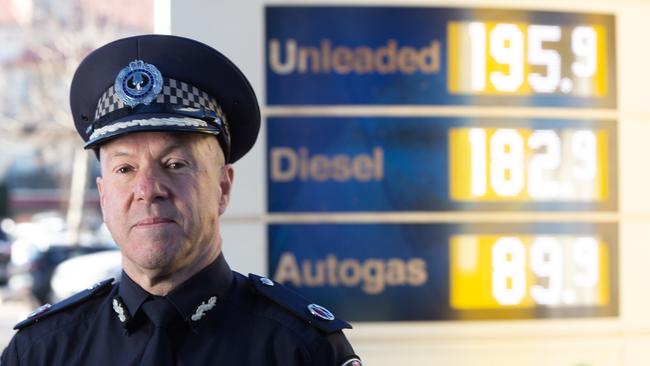If a policing model is frustrating necessary police work, change the model | Paul Starick
Whatever happened to the notion that if you commit a crime then police will come after you, asks Paul Starick.

Opinion
Don't miss out on the headlines from Opinion. Followed categories will be added to My News.
Whatever happened to the notion that if you commit a crime then police will come after you?
Weeks after launching a crackdown on city crime and anti-social behaviour they were criticised for ignoring, police are revealed to be effectively letting petrol thieves fill up for free without penalty.
Police say officers must balance priorities – code for blaming insufficient resources – but a zero-tolerance policy would be more in step with community expectations.
Zero-tolerance policing, implemented in New York City under the reign of mayor Rudolph Giuliani, involves police officers not walking past obvious crime and disorder.

This became known as the “broken windows” theory, because it involves policing methods that target visible indicators of disorder, such as vandalism, loitering and broken windows.
The Police Association in May strongly criticised the failed District Policing Model and warned the department was in crisis, largely because of “SAPOL’s disastrous policies”.
The association argues this model does not provide sufficient resources, Frontline officers revealed this meant crimes including minor drug issues, theft and property offences were not being proactively policed as intended under the model, because all available officers were involved in response taskings.
The Advertiser reveals that police rules state officers will investigate petrol drive-offs only if the theft involves other serious crimes, such as armed robbery, a stolen car or is part of a pattern.
As The Advertiser was told, this effectively means many people can pinch petrol with impunity.
Police in June caved in to public pressure to launch an official crackdown on crime and anti-social behaviour in city hotspot areas around North Tce.
This included surging more officers into the area for highly visible patrols.
This assertive style of policing improves community safety, both in reality and perception.
These revelations should trigger a similar response to petrol theft, along with the other crimes frontline officers said were being sidelined.
If a policing model is frustrating necessary police work because of insufficient resources, perhaps it’s time to change the model.




